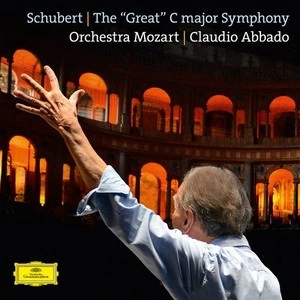180 Gram Virgin Vinyl! High Quality Pressing!
The most distinguished symphonist among Beethoven's contemporaries, and the last great composer to be uninfluenced by him, was Schubert. ...the C major is his classical masterpiece.
This is Schuberts longest symphony, and its music has been described as heavenly. The symphony is typically and specifically Schubertian in its form, occupying a position in the history of music between Beethoven, Bruckner and Mahler right on the threshold which separates classicism from romanticism.
It is hard to say if Josef Krips ever succeeded in making a finer recording. The presentation has a direct, unforced spontaneity, confirming that Krips had an intuitive understanding of Schuberts compositions. The orchestra plays with dynamic vivacity without ever sounding aggressive. The interpretation of the two final movements is delightful in its airy exhilaration: swaying in a dance-like rhythm, tripping lightly through virtually every key there is, and in between, in the Scherzo, the gravity of the trio. The Finale, again, is merry in character with triplets rushing past, and the listener revels in every single repetition as the magnificence of this work reveals itself.
The inspired orchestra does full justice to the music and renders an interpretation in the Viennese tradition at its very best.
This recording simply cannot be surpassed in terms of performance or sound quality it is a must not only for the lover of Schuberts music.
Recording: May 1958 at Kingsway Hall in London by Kenneth E. Wilkinson / Production: Erik Smith
Features:
180 Gram Virgin Vinyl
High Quality Pressing
Pure Analogue Audiophile Mastering
Musicians:
London Symphony Orchestra
Josef Krips, conductor
Selections:
Schubert
Symphony No. 9 in C Major
The most distinguished symphonist among Beethoven's contemporaries, and the last great composer to be uninfluenced by him, was Schubert. ...the C major is his classical masterpiece.
This is Schuberts longest symphony, and its music has been described as heavenly. The symphony is typically and specifically Schubertian in its form, occupying a position in the history of music between Beethoven, Bruckner and Mahler right on the threshold which separates classicism from romanticism.
It is hard to say if Josef Krips ever succeeded in making a finer recording. The presentation has a direct, unforced spontaneity, confirming that Krips had an intuitive understanding of Schuberts compositions. The orchestra plays with dynamic vivacity without ever sounding aggressive. The interpretation of the two final movements is delightful in its airy exhilaration: swaying in a dance-like rhythm, tripping lightly through virtually every key there is, and in between, in the Scherzo, the gravity of the trio. The Finale, again, is merry in character with triplets rushing past, and the listener revels in every single repetition as the magnificence of this work reveals itself.
The inspired orchestra does full justice to the music and renders an interpretation in the Viennese tradition at its very best.
This recording simply cannot be surpassed in terms of performance or sound quality it is a must not only for the lover of Schuberts music.
Recording: May 1958 at Kingsway Hall in London by Kenneth E. Wilkinson / Production: Erik Smith
Features:
180 Gram Virgin Vinyl
High Quality Pressing
Pure Analogue Audiophile Mastering
Musicians:
London Symphony Orchestra
Josef Krips, conductor
Selections:
Schubert
Symphony No. 9 in C Major




 Turntable Accessories
Turntable Accessories Headphone Accessories
Headphone Accessories Cable Accessories
Cable Accessories Vinyl Accessories
Vinyl Accessories Compact Disc Accessories
Compact Disc Accessories







